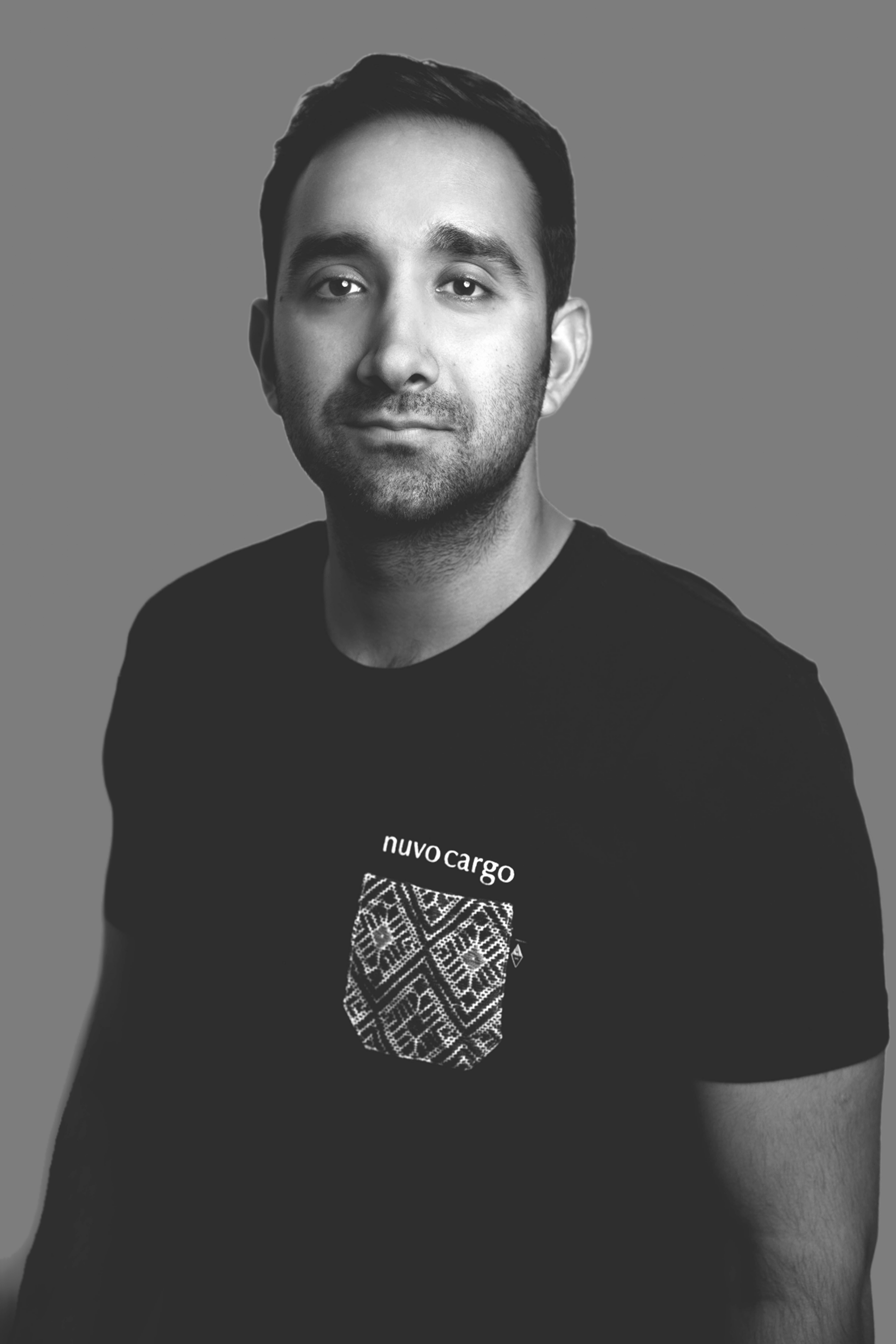Deepak Chhugani on the hard pivot
How the founder pivoted between industries and kept up his mission.
Written by Jason Shen
Deepak Chhugani’s Nuvocargo makes it easier to ship cargo between the U.S. and Mexico. It has raised $75M+ from investors like Y Combinator and Flexport. Nuvocargo is the rare case of a hard pivot, a radical change in every aspect of a startup — the industry, the product, the customers, the team.
Chhugani’s first startup was The Lobby, a networking platform for Wall Street banks, inspired by his own struggle to break into the industry. But when it became clear that the business model wasn’t working, Chhugani decided to pivot. He wanted to increase his odds of building a massive company. He looked for markets with lots of room for growth, where he could use his experience as a third-culture kid — an Indian raised in Ecuador with an entrepreneurial father who ran an import-export business. That’s where the Nuvocargo story begins.
~
Since doing your hard pivot to Nuvocargo, you’ve advised a number of founders considering the same thing.
What happens with a lot of founders is that they have boundless energy and want to make things work. But they’re also going through an identity crisis, because their company is their identity.
I’ve started asking founders who came to me for advice “what’s the end game?” upfront. It helps me understand if the person is just obsessed with a specific problem or domain and is unlikely to pivot, or if they are open to new ideas and are looking to build a great startup.
If you're the type of person who's obsessed with a specific problem or domain, but that domain is horrible for venture-backed businesses, it's gonna be really hard to advise you on a pivot. But if you're excited about building a great startup, you'll be looking for very different things. You’ll be willing to change your mind to find the right opportunity. For the people choosing the latter, I can't emphasize enough how important it is to be ruthless from a business standpoint about what to build — not poetic. At the end of the day, you're signing up to build a very big business in a short amount of time.
Let’s say someone comes to you and says they wanna do a hard pivot. How do you advise them to approach it?
The first question I ask is: “Have you raised money?” If you haven't raised money, then it's just changing your idea. No one cares. So I'm assuming you mean someone who has raised money.
Yeah, let’s assume that they’ve raised money.
I’d ask: “How many co-founders do you have?” If it's a single founder, it's gonna be hard because pivoting solo is difficult on your head. Ironically, it's still much easier because you don't have to convince someone else of the new idea.
With Nuvocargo, my co-founder Sam Blackman joined two months after I picked the idea. But when I was first talking to him during my hard pivot to logistics and freight, he didn’t think it was an interesting space. He liked another fintech idea I had. I had to ignore him, get in the room, convince myself of what I wanted to do.
Then, when I had more of a pitch, I convinced him to join. But when it was just a kernel of an idea, it would've been impossible for us to get on the same page.
If you don’t have any of that, it’ll be hard to build a good business.
Let’s assume they’re not wedded to any particular problem, space, or idea.
I’d start by issuing them a big warning that this is going to be painful. Nothing is going to make sense at first. You have zero customer insight.
Then, I’d advise them to map out their unfair advantages as a founder. For me, those are things like being bilingual, YC-backed, having engineers working abroad that can build products quickly. I have connections in real estate through a friend I met during my sabbatical.
From there, they’ll need to pick three to five markets that they find fascination and believe will be transforming over the next 5-10 years. Starting market-first is something I didn’t understand when I started The Lobby. I got into YC, but every investor was still like “Oh this guy’s in recruiting. What a terrible market.” No one wanted to take a meeting.
The difference with Nuvocargo is that they’re reaching out to me. We raised every round in a week. It’s different and it has nothing to do with me. It was just based on the data VCs have about where big companies are built.
The next component for me is business models. The Lobby was not a proven business model, and that ended up being our downfall. We had customer demand, some revenue, and an exciting narrative. But to me a good business model means there’s already a version of what you do and how you charge for it. It’s reached a scale where it’s a great standalone business. We never had that with our pay-for-referral model at the lobby. I would pattern match these to successful companies: SaaS, totally free to reach scale, data mining, whatever.
Finally, you have your actual ideas. The hard part there is looking for ways to tie together your market, business model, idea, and unique advantages.
This is the messy part. You’ll need to speak with investors and customers, and build MVP’s to really get an understanding of your idea. Every idea has flaws.

Never miss another untold story.
Subscribe for stories, giveaways, event invites, & more.
When you were gearing up to pivot, you posted in an internal Y Combinator forum asking if other founders had gone through a hard pivot and if they had any advice. Was that helpful?
It was huge. That's one of the most magical things about that community. All of these successful founders of multi-billion dollar companies were answering my questions within minutes. Even Eric Ries, who wrote The Lean Startup, was offering his help. It was surreal.
At the same time, I've spoken with many founders trying to make this change. The odds of it working are really low. Had I known that before, I might have given up.
Are pivots harder than people think? Startups are already a low-likelihood business. Should founders think twice and make their business work before changing?
It’s hard to give blanket advice. I would just say that when I was going through my pivot, I thought I could be clever and find shortcuts. It was still really tough.
If you can avoid having to go through a hard pivot, whether by being more thoughtful early on about what you’re building or working at another startup in the space you’re in or validating your idea more before raising money, I would.
Startups are brutal and hard pivots just compound that difficulty. At the end of the day, what makes startups succeed is the founder’s energy and enthusiasm. And if you’re hard pivoting four years into your company with no wins or validation — you’re tired. You have to ask yourself if you have the energy and determination to keep going.
In my case, I was 25. It’s scary to think of the energy I had. I didn’t come from Big Tech or Harvard or Stanford, and I had gotten into Y Combinator without a technical cofounder. It was like a dream. If I had more of a martyr attitude it would not have worked—but I genuinely saw every piece of it as a cool experience. It was like 15 months into The Lobby and I’m like, fuck it, didn’t work but I got into YC, I learned how to build product and raise money. I’m pivoting.
Have you had any experience or made any decisions since that pivot that have required the same level of conviction, dedication, resilience?
We’ve certainly had some very difficult challenges with the business. While raising $75M, we had financings nearly fall apart at the last minute. We’ve blitz scaled hiring to over 150 people. We built remote teams during that growth. Now, we’re adjusting to a new market where we have to go from growth at all costs to margins. We’re exploring a potential business model iteration.
But to answer your question — no. None of those have been as painful as trying to pivot. You think it’s your only shot that you don’t want to screw up. I’ve never felt as overwhelmed as I did during that pivot.
More Like This
